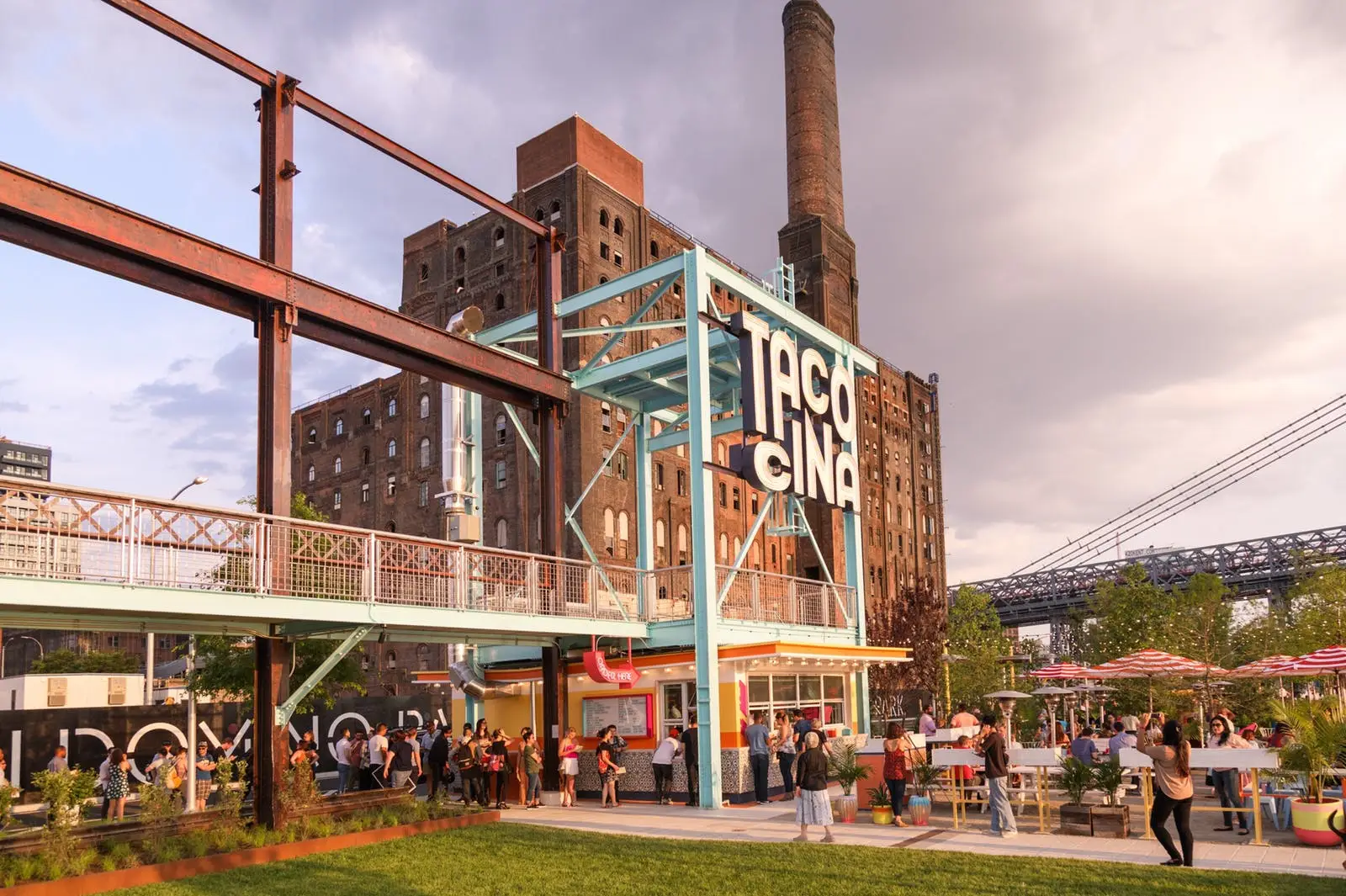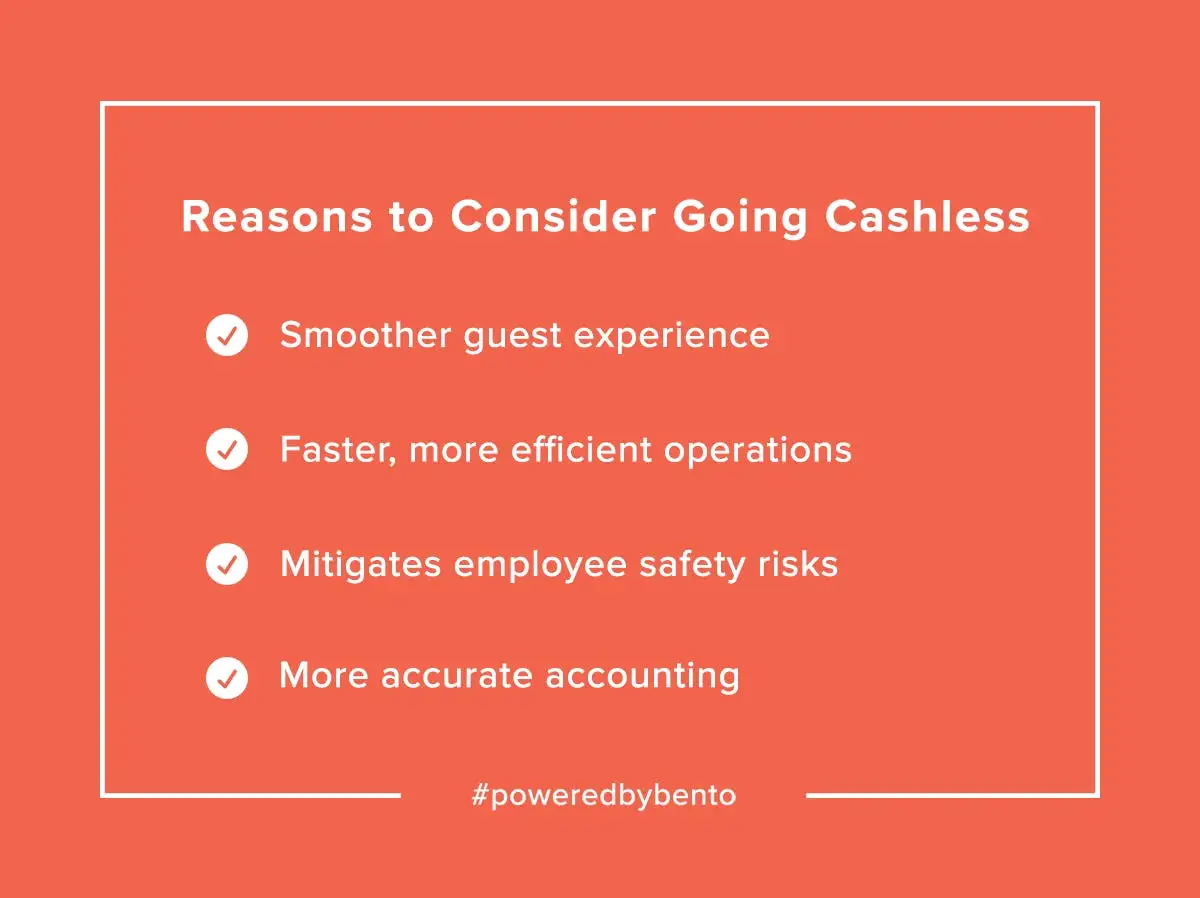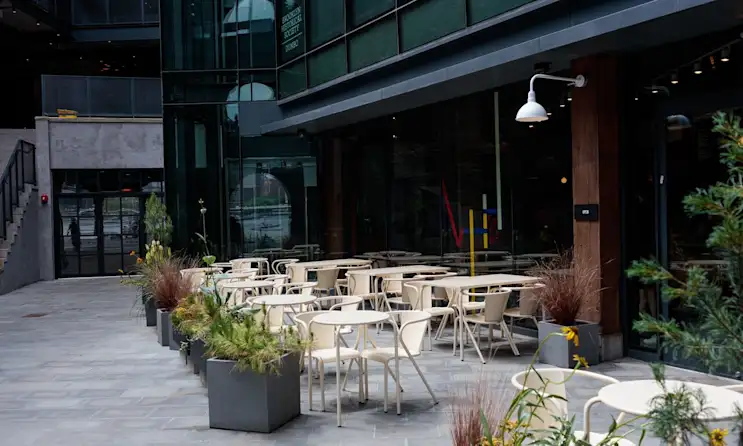Interview
Why Restaurants Are Going Cashless
August 20, 2018
Sunday in Brooklyn and Tacocina on why it’s the right business move
“Cash only” used to be a caveat for dining out at certain restaurants. But these days, another term is catching customers by surprise when they’re ready to settle up: “cashless” or “cash-free.” It isn’t just sit-down, fine-dining establishments that are doing away with paper money. Fast-casual Mexican restaurant Dos Toros, ice cream chain Milk Bar, and small cafés like Daily Provisions in New York have all switched to accepting only electronic payment.
While there is no law that states that private establishments cannot refuse U.S. currency (with the exception of Massachusetts), some critics think this movement is geared towards a certain kind of customer base, and leaves out the rest. Common sense would tell you that a credit/debit-based payment system excludes people without bank accounts.
But the argument that cashless restaurants are making for this business strategy is that it makes sense for logistics, customer convenience, and the safety of employees. BentoBox customers Sunday in Brooklyn and Tacocina are two of a number of food establishments in New York City that believe the best way to make a buck is to have none in the register.
For the employees
One of the biggest concerns of employers is the safety of their employees, and cash can cause trouble. Robbery is a huge risk. As Union Square Hospitality Group CEO and co-owner of Tacocina Danny Meyer points out in an article he published via LinkedIn, going cashless “mitigated the very real security risks associated with having large quantities of cash on-site, so we can become a safer place for our team and our guests.”

Newly-opened Tacocina is a cashless operation in Brooklyn, NY.
Sunday in Brooklyn co-founder Adam Landsman shares this sentiment, saying “There’s no concern over theft or the safety of our managers or staff when they have to walk home with cash.” Landsman also adds that it also helps their employees reduce after-hours work. “It saved a tremendous amount of time on the accounting side of things, for the manager at the end of the night,” he says.
For the business
Dealing with cash also presents the complications that come with manual computation—especially on an extremely busy day. It’s easy to give the wrong change or miscount when the floor is buzzing with hungry customers.
According to Landsman, it’s a huge convenience not having to chase petty cash or blame unreliable accounting. “At the end of the night, you’re not chasing down $1, $2, or $7 in some comp, or somebody paying an incorrect amount, or somebody keeping cash in their pocket,” he says. With electronic payment, it’s all there and can easily be corrected. A small cost-cut also comes from the fact that there is no longer a need to hire a Brinks truck to transport cash to the bank.
For the customers
Ultimately, going cashless is something these restaurants want to do for the benefit of the customer. As Landsman and his business partner were laying out operations for their restaurant, it was important for them to ask: “How can we make it better for our guests with a smoother process? How can we provide a hospitality component that goes beyond just what happens at the restaurant?”

For them, going cashless means transparency, especially with table-side payment readily available. It saves time, paper, and trouble. “Everybody can get a digital receipt immediately,” says Landsman. “It [also] keeps everything completely transparent to the guests so that anything that happens is right there in front of them. And if anybody has any issues, people can dispute the charge.” And as Meyer writes in his piece, “Without handling cash and making change, we can serve more guests in far less time, meaning you spend less time waiting in line to place your order and pay.”
In the name of hospitality
Regarding the issue of exclusion, both Meyer and Landsman acknowledge that the most important thing in the hospitality business is to be hospitable to all. Meyer says that “Policies can be broken in the name of hospitality, and if someone wants to enjoy our food and drink, yet is only able to pay with cash, it is unlikely that we would turn them away.” Sunday in Brooklyn will also try to make it work for customers who really have no means of making an electronic payment, saying that on occasion he and his employees have taken cash from some customers and used their own cards to make the e-transaction.
Landsman says, “The idea is not to inconvenience people. It’s to give people a better experience overall.”
Recommended

Operations
7 Restaurant Sustainability Best Practices to Know
April 19, 2023
A look at how and why restaurants are building sustainability into their brands.

Operations
Why Upscale Restaurants Are Going Fast-Casual
November 15, 2017
With advice from Daily Provisions, Made Nice and VHH Foods


